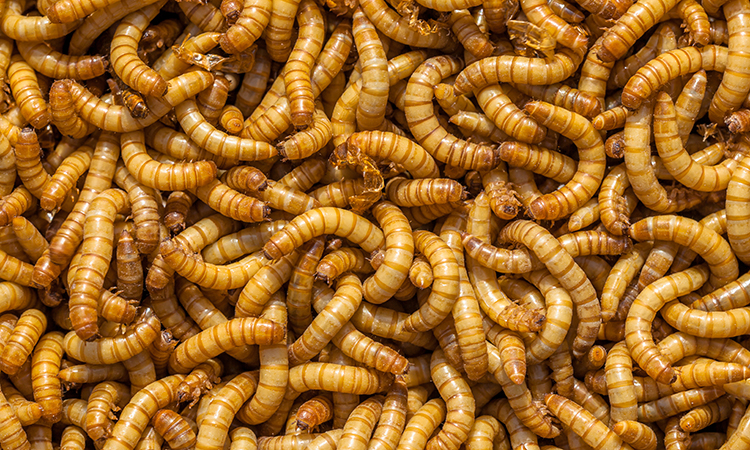Let’s talk sustainability for the sports nutrition sector
- Like
- Digg
- Del
- Tumblr
- VKontakte
- Buffer
- Love This
- Odnoklassniki
- Meneame
- Blogger
- Amazon
- Yahoo Mail
- Gmail
- AOL
- Newsvine
- HackerNews
- Evernote
- MySpace
- Mail.ru
- Viadeo
- Line
- Comments
- Yummly
- SMS
- Viber
- Telegram
- Subscribe
- Skype
- Facebook Messenger
- Kakao
- LiveJournal
- Yammer
- Edgar
- Fintel
- Mix
- Instapaper
- Copy Link
Posted: 24 February 2022 | Dr Adam Carey | No comments yet
Dr Adam Carey from the European Specialist Sports Nutrition Alliance (ESSNA) discusses sustainability in sports nutrition and defines key targets and regulatory insights to help the industry innovate while meeting policymakers’ and consumers’ expectations.


The food and drink sector has acknowledged the need to shift to more sustainable processes in recent years, given that food production now exceeds environmental limits. Also, modern-day consumers are well informed and aware of key issues such as nutrition, sustainability and climate change, and are therefore increasingly seeking environmentally-friendly products.
Representing an important of the food and beverage industry and a fast-growing sector, sports nutrition is strongly connected to the issue of climate change and the increasing governmental efforts in Europe and globally to promote less meat-based and more sustainable diets. The following highlights the main sustainability objectives and policy and regulatory developments in this area that sports nutrition businesses should be focusing on.
Energy transition
With its ‘Fit For 55’ package (the EU’s pledge to reduce net greenhouse gas emissions by at least 55 percent by 2030) , the European Commission pledges to revise the Renewable Energy Directive to increase the EU’s ambition to produce 40 percent of its energy from renewable sources by 2030. The food industry has a crucial role to play within this initiative, considering that it is responsible for up to 25 percent of total greenhouse gas emissions, with sports nutrition naturally contributing to that figure.
Moving to renewable sources of energy is a key step to reducing the sector’s carbon footprint. For instance, using solar panels and biomass plants in the manufacturing of sports nutrition products can boost the resilience of supply chains, reduce carbon footprints, and ensure operations are fit for a low-carbon future.
Circular packaging, reduction of food waste and efficient waste management
One of the main objectives of the EU’s Circular Economy Action Plan is to promote the use of sustainable packaging materials. Also, the Commission aims to revise the EU legislation regarding food contact materials, to support the uptake and adoption of more innovative and sustainable packaging solutions and contribute to the reduction of food waste. The industry can support this aim by establishing return schemes for consumers to sustainably dispose of their packaging, and adopting fully recyclable solutions such as PETE plastic or FSC-certified carboard.
Moreover, as a product’s sustainability journey continues after its disposal, it is important that businesses take responsibility for the goods they place on the market and work to establish practices to ensure waste is managed in a responsible, sustainable and circular manner. In this context, partnerships with recycling companies to ensure any hard-to-recycle waste can be reused to its fullest or converted into a resource such as refuge-derived fuel, can be instrumental. In addition, companies must work to ensure that clear messaging about recycling instructions appears on their products’ labelling, so that products do not unnecessarily end up in landfill.
Sustainable and transparent sourcing of ingredients
Sustainability concerns can prove particularly challenging when raw materials and ingredients are sourced from countries at risk of deforestation or with laxer environmental standards. The Commission’s upcoming policy proposal for compulsory supply chain due diligence legislation aims to advance operational transparency and sustainable sourcing in the food sector. The sports nutrition industry’s contribution to this objective can be vital, taking active steps with suppliers to ensure value chains are more transparent and allowing ingredients to be fully traced to their sources.


Dried yellow mealworms were very recently approved for consumption by the EFSA
High animal welfare standards, insect and plant-based products
Ensuring that all animal products are sourced from responsible producers that comply with the highest and strictest animal welfare practices is essential in enhancing the food sector’s sustainability standards. For instance, with regard to the sports nutrition industry’s most common source of protein – whey – some manufacturers have already taken steps to source it from grass-fed and free-range farms, while others refrain from using ‘mega dairies’. Whey is a by-product from cheese production that was popularised and made valuable by the sports nutrition sector as a healthy and efficient source of protein. This makes sourcing the ingredient an inherently sustainable process with a low carbon footprint.
Also, sustainably sourced plant-based products have become popular with active consumers due to their potential health benefits and reduced environmental impact. The industry has continued to create innovative and more sustainable alternatives to animal-based supplements and ingredients, using plant-based protein sources such as pea, wheat, nut, soy and hemp.
Another area of innovation is the insect-based protein sector. Insect cultivation uses a fraction of the land, energy and water required for traditional farming, and has a significantly lower carbon footprint. As Horizon, the EU Research and Innovation Magazine, has emphasised, edible insects can be reared using 50- 90 percent less land than conventional livestock and produce about 100 times fewer greenhouse gas emissions. Furthermore, they can be fed organic waste – discarded food that often ends up in landfill.
In January 2021, EFSA published its first risk assessment regarding the safety of dried yellow mealworm for food consumption, either as a whole dried insect or in the form of powder. EFSA’s opinion suggested that the insect was safe for human consumption under the proposed conditions set in the respective application, marking an important milestone towards the wider EU commercialisation of edible insects.
As with other food and drink markets, sustainable development seems to be the way forward for the sports and active nutrition industry. Incorporating ethics, transparency and respect for the environment in both manufacturing processes and business organisations, in accordance with public policy’s sustainability objectives, is the best way to gain the trust of consumers and policy makers. In this process, staying up to date on related regulations is of course key.
The European Specialist Sports Nutrition Alliance (ESSNA) is monitoring the latest legislative and policy developments on sustainability and is in close continuous dialogue with a wide variety of stakeholders on both sides of the English Channel, taking a leading role in the industry’s transition to sustainability. Following a holistic approach, ESSNA will soon be launching its sustainability pledge. This aims to unite its members in their commitment to ensuring the formulation, manufacturing, distribution and overall production of sports and active nutrition products is achieved in a manner that fosters healthy social, economic, and environmental relationships for generations to come.
About the author
Dr Adam Carey is the Chairman of the European Specialist Sports Nutrition Alliance (ESSNA), the trade association representing the sports nutrition sector across Europe. ESSNA was created in 2003 to campaign for appropriate policies and legislation on sports nutrition products. Today ESSNA is a mature and respected organisation, widely recognised by legislators and the mainstream and specialist media as the voice of the responsible specialist sports nutrition sector in Europe.
Related topics
Health & Nutrition, Regulation & Legislation, Sustainability
Related organisations
European Commision, European Specialist Sports Nutrition Alliance (ESSNA)









